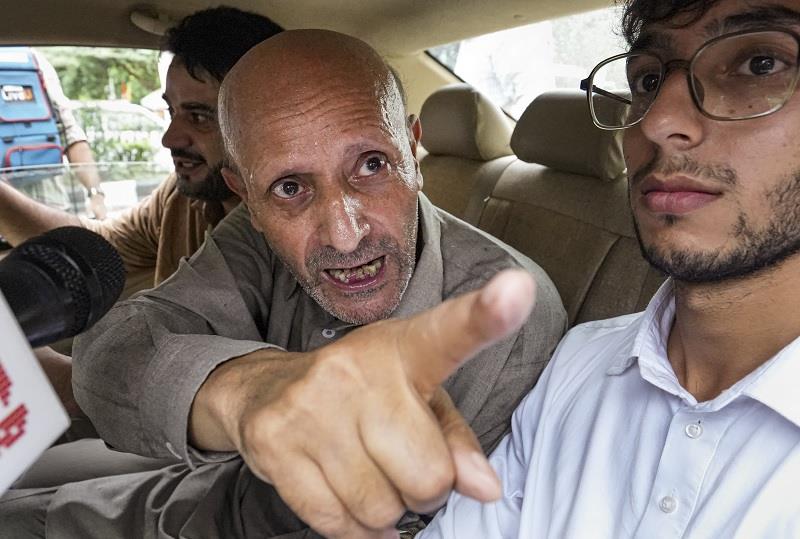
The Breakers Of PAGD Have No Right To Call Others Vote Splitters
One of the primary narratives pushed by the NC and PDP is the“unity card,” which emphasizes the need for Kashmiri political forces to remain united. To gauge the sincerity of this call for unity, one only needs to examine the breakdown of the People's Alliance for Gupkar Declaration (PAGD). Both NC and PDP were central to this alliance, which was supposed to be a collective front for reclaiming Kashmir's special status. Yet, despite their claims of prioritizing unity, these two parties chose to contest both the parliamentary and now assembly elections separately. If they were genuinely concerned about unity, would they not have stayed united for the elections, particularly when facing a common political adversary?
Read Also I Will Be King Not Kingmaker: Er Rashid AIP Faces Backlash Amid Sectarian SlogansThe INDIA Alliance: Can It Restore Kashmir's Special Status?
The INDIA alliance, a coalition of opposition parties including the Indian National Congress, is being portrayed as a saviour for the people of Kashmir, with promises of restoring the region's special status. However, this narrative does not hold up to scrutiny. The Congress, one of the key parties in the alliance, has been largely silent on the issue of restoring the pre-August 5, 2019, status of Jammu and Kashmir. When asked directly about the restoration of Article 370 and 35A, Congress President Mallikarjun Kharge dodged the question. It is almost inconceivable that Congress would undo what the BJP did on August 5, 2019. After all, Congress has been responsible for the gradual erosion of Article 370 for decades, and many believe that their ultimate goal was also to eventually revoke it.
Furthermore, several constituents of the INDIA bloc, including Arvind Kejriwal, the Chief Minister of Delhi, celebrated the revocation of Article 370. Congress leaders who do speak on the matter criticize the manner in which the decision was carried out, not the decision itself. Hence, any belief that the INDIA alliance will reinstate Article 370 is naive at best.
The Hypocrisy of Labelling Candidates BJP Proxies
One of the most striking aspects of this election is the tendency of NC and PDP to label nearly every independent candidate or emerging political force as a BJP proxy. For instance, Engineer Rashid, the leader of AIP, has been explicitly called a BJP agent. Yet, this narrative does not resonate with the average Kashmiri, who vividly remembers the past alliances between the NC, PDP, and BJP. PDP, in particular, sought votes in 2014 on the promise of keeping the BJP out of power. However, after winning the elections, they formed an alliance with the BJP, much to the dismay of the electorate. PDP President Mehbooba Mufti has since justified this alliance by claiming that her father, Mufti Mohammad Sayeed, believed Narendra Modi would follow in the footsteps of former Prime Minister Atal Bihari Vajpayee and work towards resolving the Kashmir issue. But can it be justified to seek votes on one platform and do the complete opposite once in power? The PDP is now paying the price for this miscalculation, fighting for its political survival.
Given their past, neither NC nor PDP have the moral authority to label independents or new political forces as BJP proxies. This argument simply does not hold up. Both parties have themselves engaged in alliances with the BJP and are now accusing others of being proxies. The people of Kashmir are not buying this narrative.
The Emergence of Engineer Rashid and the AIP
Engineer Rashid's AIP is one of the most prominent new political forces in this election. Rashid's party secured a significant victory in the Baramulla Parliamentary elections, defeating former Chief Minister Omar Abdullah and People's Conference leader Sajad Lone. Rashid's win, with over 200,000 votes, cannot be dismissed as a fluke or a sentimental vote, as his detractors claim. Rashid has served two terms as an MLA from Langate and garnered over 100,000 votes in the 2019 parliamentary elections. These are not insignificant numbers and reflect a genuine mandate from the people.
Dismissing Rashid's political influence as a mere sentiment disregards the complexity of politics in Kashmir, where sentiment and politics are inextricably linked. If Rashid's political strategy is based on sentiment, then what are NC and PDP doing when Omar Abdullah campaigns by removing his skull cap, urging them to vote to“save his dignity”? In Kashmir sentiment is a valid political tool and everyone political party has used it in their own ways , and Rashid's rise is a pointer towards to his ability to connect with the electorate on both emotional and political levels.
Conclusion
In a democracy, everyone has the right to participate in elections. Just because established parties feel threatened by emerging political forces does not entitle them to label their rivals as proxies or agents. It is essential to compete in elections with grace and respect for one's opponents, rather than resorting to name-calling and fear-mongering.
Kashmir's political landscape is changing, and new forces are emerging. Rather than dismissing them, the established parties must recognize that political competition is healthy for democracy. It is time to move away from power-driven politics and towards value-driven leadership. Elections should not be about personal gain but about serving the people and advancing the greater good for the region.
Views expressed in the article are the author's own and do not necessarily represent the editorial stance of Kashmir Observer
-
Ummar Jamal is Kashmir based columnist. He tweets at ummar_jamal and can be reached at [email protected]

Legal Disclaimer:
MENAFN provides the
information “as is” without warranty of any kind. We do not accept
any responsibility or liability for the accuracy, content, images,
videos, licenses, completeness, legality, or reliability of the information
contained in this article. If you have any complaints or copyright
issues related to this article, kindly contact the provider above.


















Comments
No comment